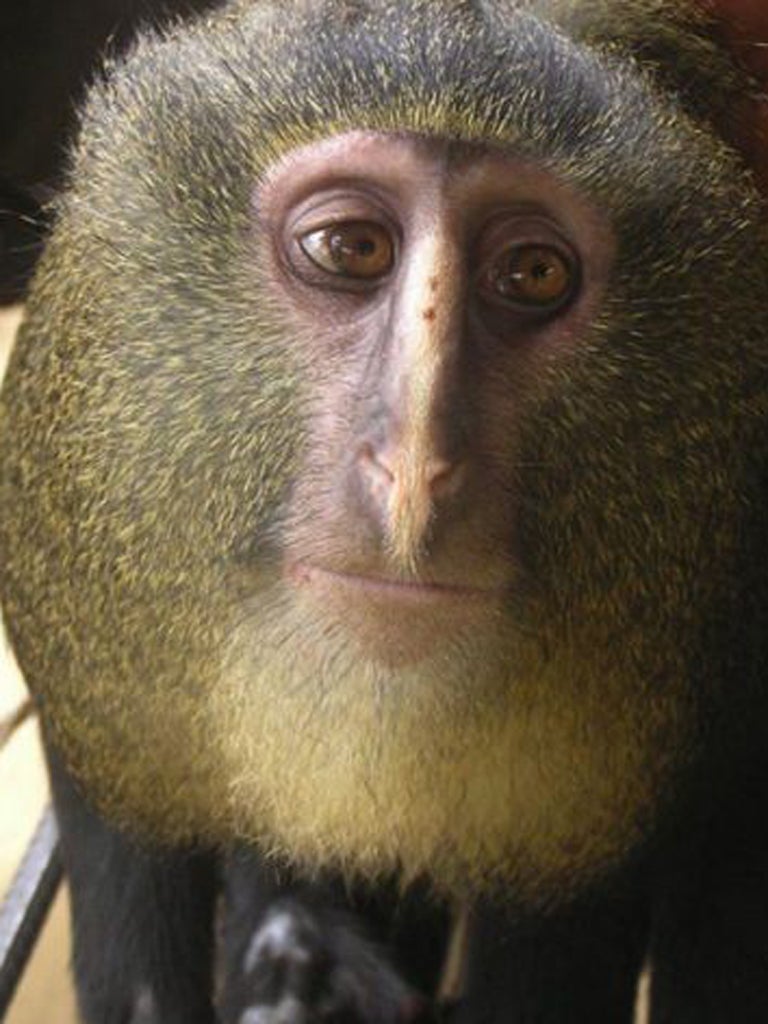
Your support helps us to tell the story
From reproductive rights to climate change to Big Tech, The Independent is on the ground when the story is developing. Whether it's investigating the financials of Elon Musk's pro-Trump PAC or producing our latest documentary, 'The A Word', which shines a light on the American women fighting for reproductive rights, we know how important it is to parse out the facts from the messaging.
At such a critical moment in US history, we need reporters on the ground. Your donation allows us to keep sending journalists to speak to both sides of the story.
The Independent is trusted by Americans across the entire political spectrum. And unlike many other quality news outlets, we choose not to lock Americans out of our reporting and analysis with paywalls. We believe quality journalism should be available to everyone, paid for by those who can afford it.
Your support makes all the difference.A new species of monkey has been identified in Africa, researchers have said.
The species, known locally as the lesula, was discovered after a young female was seen kept captive at the home of a primary school director in the Democratic Republic of Congo in 2007.
The young animal resembled an owl faced monkey (Cercopithecus hamlyni) but its colouring was different to that of any known species, the researchers writing in the journal PLoS ONE said.
Other wild lesula (Cercopithecus lomamiensis) have since been found in their remote range in central Democratic Republic of Congo, where they live in forests and feed on leafstalks, fruit and flower buds.
The discovery of the new species, in one of the country's last unexplored forest areas, is only the second time a new monkey species has been found in Africa in the last 28 years.
Although the 6,500 square mile area in which the shy lesula is found is remote and sparsely populated, the researchers warn the monkey is vulnerable to extinction as a result of hunting for bush meat.
They called for controls on hunting and the creation of a protected area covering its range to conserve the lesula and other wildlife found in the region.
Researcher John Hart said: "The challenge for conservation now in Congo is to intervene before losses become definitive.
"Species with small ranges like the lesula can move from vulnerable to seriously endangered over the course of just a few years."
PA
Join our commenting forum
Join thought-provoking conversations, follow other Independent readers and see their replies
Comments